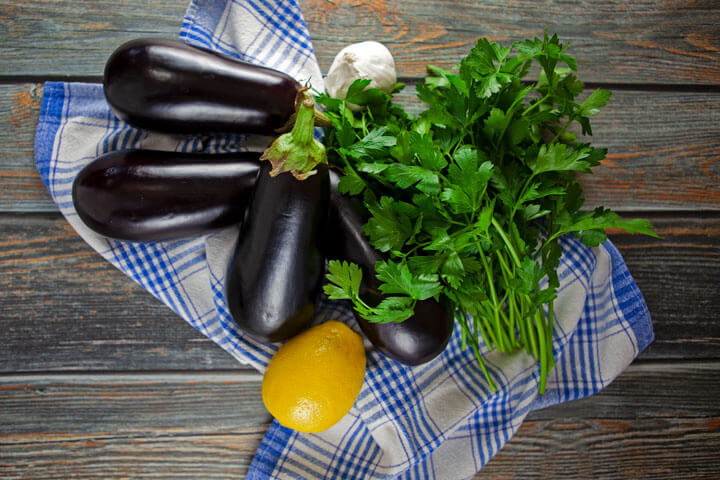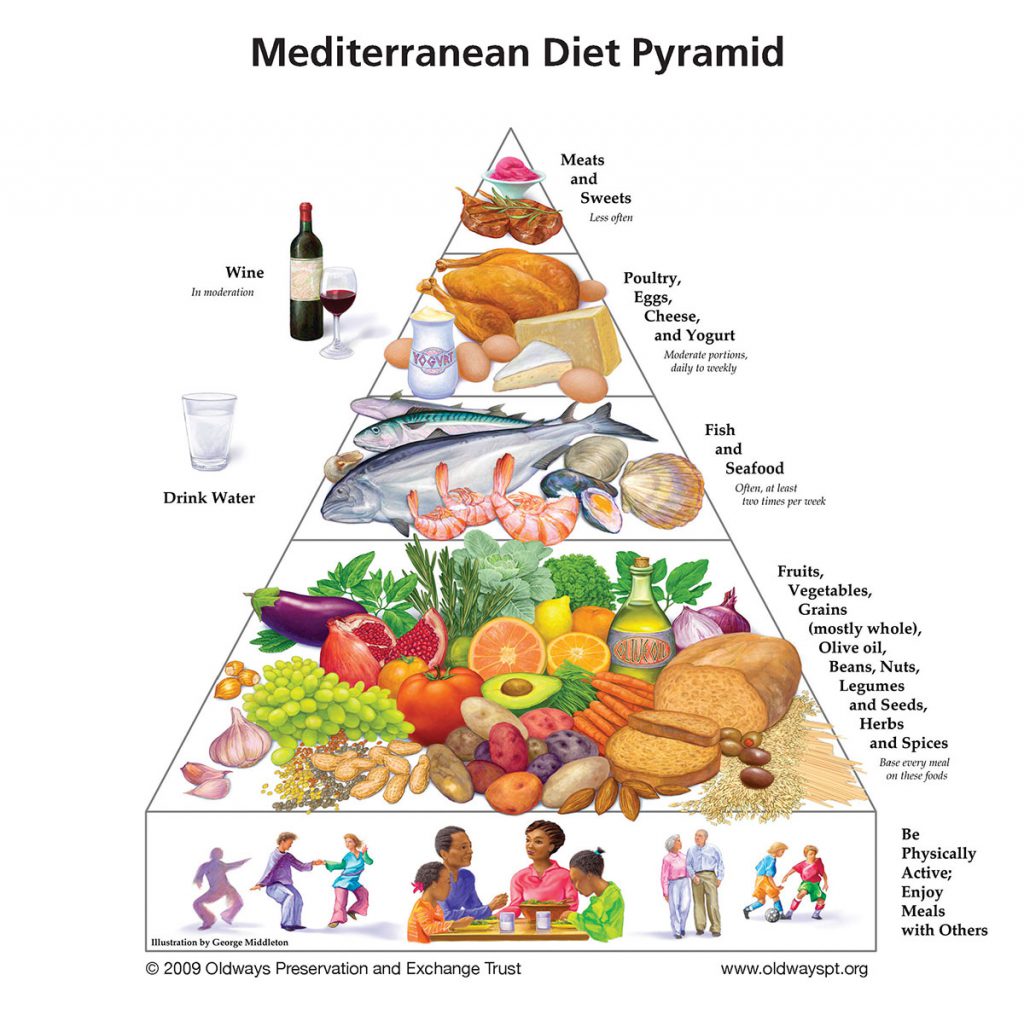The Mediterranean Diet is based on the traditional eating patterns and lifestyles of the countries surrounding the Mediterranean Sea (Albania, Algeria, Andorra*, Bosnia-Herzegovina, Croatia, Cyprus, Egypt, France, Greece, Israel, Italy, Jordan*, Lebanon, Libya, Malta, Monaco, Montenegro, Morocco, Palestinian Territories, Portugal*, Slovenia, Spain, Syria, Tunisia, Turkey).
*Andorra, Jordan, and Portugal do not have a coastline on the Mediterranean. They are included in the list of Mediterranean counties due to their climate, geography, and culture.

There isn’t exclusively “one” Mediterranean diet. People from the Middle East countries eat differently from Greeks, who eat differently from the Italians, French, Spanish, etc. It refers to the universal dietary principles of the people in the Mediterranean region.
There are differences in the cuisine between the countries; however, common core factors across the way of eating and living remain throughout
- The use of olive oil
- High fruit and vegetable intake
- High whole grain intake
- Increased consumption of fish
- Moderate consumption of dairy products
- Limited intake of red meat
- Limited intake of sugar and sweets
- Regular physical activity
- Sharing meals with family and friends and enjoying life.

A Way of Living, Not a “Diet”
The Mediterranean Diet is so much more than a mere healthy and tasty dietary pattern. Rather than focusing on individual ‘superfoods,’ it is the overall approach and combination of lifestyle practices and foods that identify it and make it so healthy and famous.
It is a food culture that extends to the rituals and traditions concerning crop harvesting, livestock, fishing, processing, cooking, and sharing meals with family and friends. In 2013, UNESCO inscribed the Mediterranean Diet on the List of Intangible Cultural Heritage of Humanity.
When we are talking about a “diet,” we always think about a set of rules to follow, a strict list of “what not to eat,” superfoods, calorie counting, carb counting, etc. And the most important word that comes to mind is deprivation, though extreme portion control or elimination of food categories (e.g., eliminating grains, legumes, and dairy).
The way of the Mediterranean Diet is different. It is a healthy and well-balanced way of eating by allowing all food categories and sensible portions while focusing on flavor and enjoying the meals with friends and family.
Unless there is a specific health issue, and the medical professional recommends eliminating certain foods, there is no reason to do so as part of your eating way.
Are you looking for some ways to follow the Mediterranean diet?
Related posts
- Mediterranean Diet Food List
- Foods To Avoid When Following the Mediterranean Diet
- Mediterranean Diet Rated as the Best Diet for 2022
- Food Glossary of the Mediterranean Diet
- Mediterranean Diet Resources
- Easy Ways To Adopt The Mediterranean Diet
- Mediterranean Diet and Lifestyle
** Eat Mediterranean Food is a personal blog and recipes website dedicated to Mediterranean cooking and lifestyle. The readers assume full responsibility for consulting a qualified health professional regarding any health conditions and concerns before starting a health program or diet or lifestyle changes.


 Food Glossary of the Mediterranean Diet
Food Glossary of the Mediterranean Diet
Leave a Reply